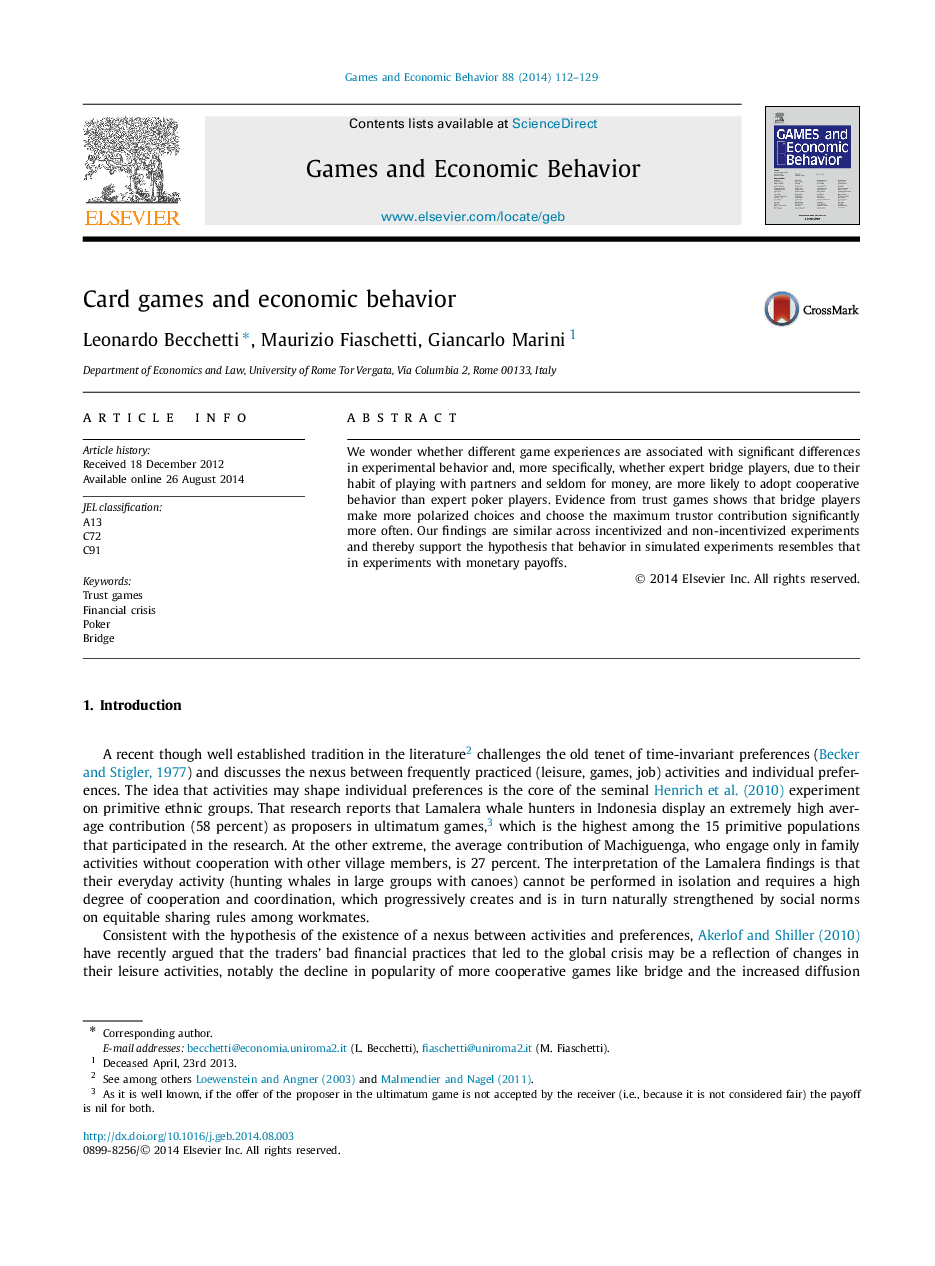| Article ID | Journal | Published Year | Pages | File Type |
|---|---|---|---|---|
| 5071732 | Games and Economic Behavior | 2014 | 18 Pages |
â¢Are different game experiences associated with differences in experimental behavior?â¢Are bridge players more likely to adopt cooperative behavior than poker players?â¢Bridge players make more polarized choices in trust games.â¢Bridge players choose the maximum trustor contribution significantly more often.â¢Our findings are similar across incentivized and non-incentivized experiments.
We wonder whether different game experiences are associated with significant differences in experimental behavior and, more specifically, whether expert bridge players, due to their habit of playing with partners and seldom for money, are more likely to adopt cooperative behavior than expert poker players. Evidence from trust games shows that bridge players make more polarized choices and choose the maximum trustor contribution significantly more often. Our findings are similar across incentivized and non-incentivized experiments and thereby support the hypothesis that behavior in simulated experiments resembles that in experiments with monetary payoffs.
